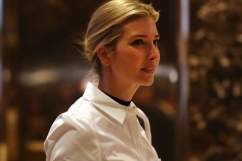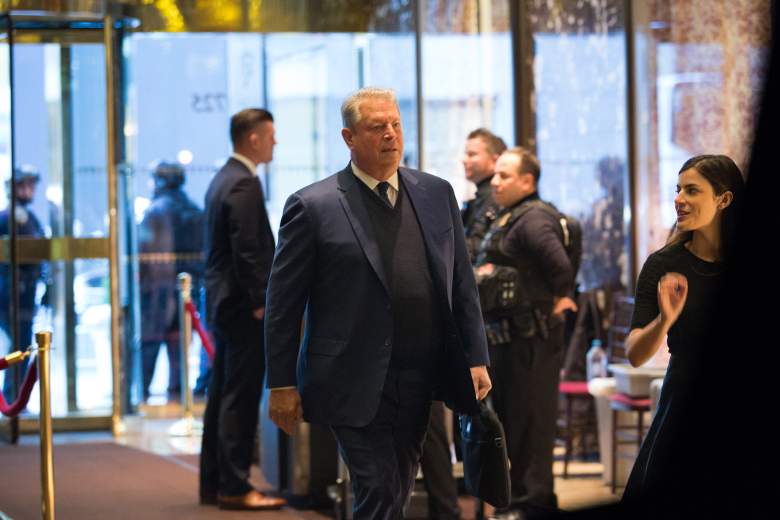
Al Gore arrives for a meeting at Trump Tower on December 5th. (Getty)
Former Vice President Al Gore held a meeting with President-Elect Donald Trump’s daughter, Ivanka Trump, in New York City today.
This was a surprising development, as in many ways, Trump and Gore could not be more different. Gore was a fierce opponent of Trump during the presidential election, but now he is hoping he can make a case for combating climate change and that Ivanka Trump, who is more liberal than her father, will be willing to listen.
Here’s what you need to know about the relationship between Donald Trump and Al Gore.
1. Gore Says Trump’s Climate Change Position Should Concern Everyone

Al Gore appears at a Florida rally with Hillary Clinton. (Getty)
During the presidential election, Al Gore endorsed Hillary Clinton and said he was alarmed by Donald Trump’s position on climate change.
In an interview with Today, the former vice president said he was worried about Trump’s statements that he doesn’t believe in climate change, but Gore still said he saw some hope even if Trump became the next president.
“I’m not pollyannaish about it, but I do think that there is still some basis for hope,” Gore said. “…President Carter said that he hopes [Trump will] still be malleable. I don’t know.”
Now, it seems Gore is relying on that hope that he can change Trump’s position on global warming, which the president-elect has repeatedly called a hoax. After the election, Gore said that he hopes some of Trump’s statements won’t turn into policies, according to The Guardian. He also said that he would be happy to work with President-Elect Trump.
“Last night President-elect Trump said he wanted to be a president for all Americans,” Gore wrote on the Climate Reality Project’s website. “In that spirit, I hope that he will work with the overwhelming majority of us who believe that the climate crisis is the greatest threat we face as a nation. I wish him well in these efforts and intend to do everything I can to work with him and his administration to ensure that our nation remains a leader in the global effort to meet this challenge.”
2. Trump Now Seems Somewhat Open to Discussing Climate Change
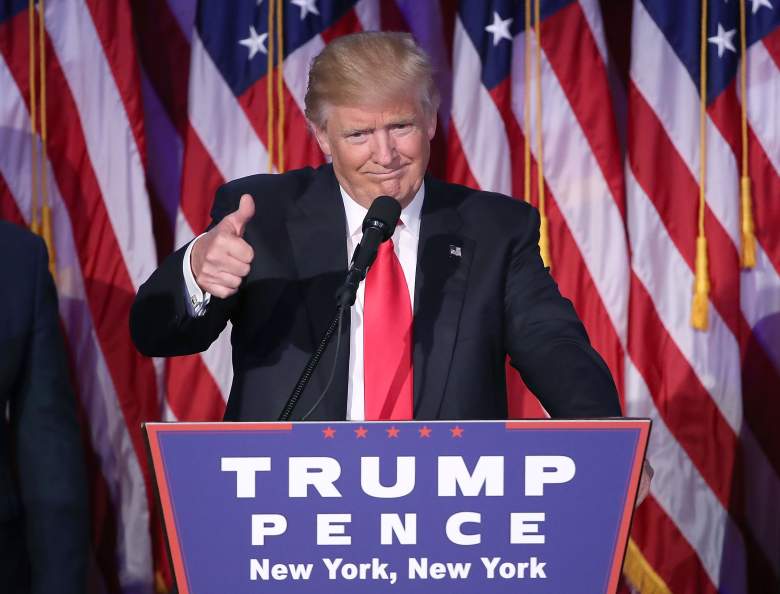
Donald Trump gives his acceptance speech after being elected president of the United States. (Getty)
That hope Gore has might not be entirely misplaced, and a recent interview with The New York Times suggests that Trump might now be slightly more open to changing his mind on climate change.
In the interview, Trump clearly indicated that he still doesn’t see climate change as a threat, but he was not as firm about it as he is about some of his other stances.
“You know the hottest day ever was in 1890-something, 98,” Trump said. You know, you can make lots of cases for different views. I have a totally open mind…. It’s a very complex subject. I’m not sure anybody is ever going to really know.
However, Reince Preibus, the incoming White House chief of staff, was more definitive when he recently said that Trump’s default position is that climate change isn’t real.
“As far as this issue on climate change, the only thing he was saying after being asked a few questions about it was, look, he’ll have an open mind about it. But he has his default position which, most of it is a bunch of bunk,” Priebus recently said on Fox News Sunday.
3. When Trump Wouldn’t Commit to Accepting Election Results, His Aides Cited Al Gore
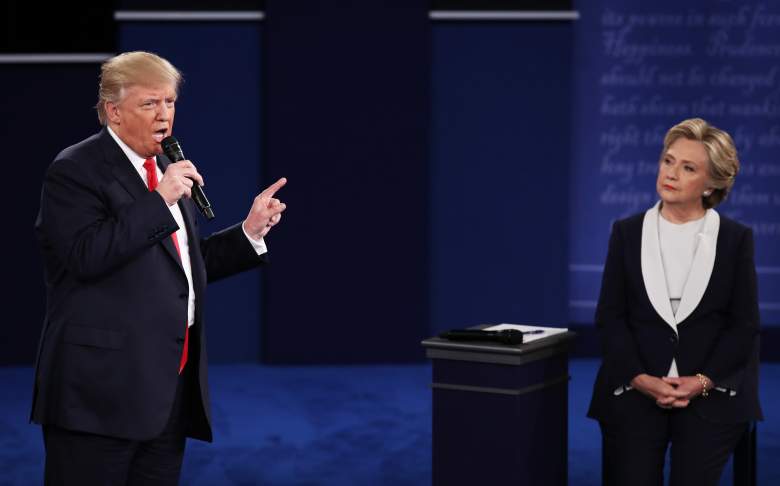
Donald Trump and Hillary Clinton speak during the second presidential debate. (Getty)
Donald Trump incited controversy back in October when he repeatedly refused to say that he would definitely accept the result of the upcoming presidential election. While defending their candidate, Trump’s aides compared his situation to that of Al Gore, who retracted his concession on election night 2000 when it became clear that Florida was too close to call.
“Al Gore had already conceded the election to George W. Bush in 2000, Chris, we remember the night well, and then he called to retract his concession, and it went on for six weeks, it went all the way to the United States Supreme Court,” Kellyanne Conway said at the time.
Of course, this analogy doesn’t quite work because in one case, Trump was doubting the election results weeks before Election Day, whereas Gore was examining them the night of because the race was close.
4. After Trump Won, Al Gore Said the Electoral College System Should Be Replaced
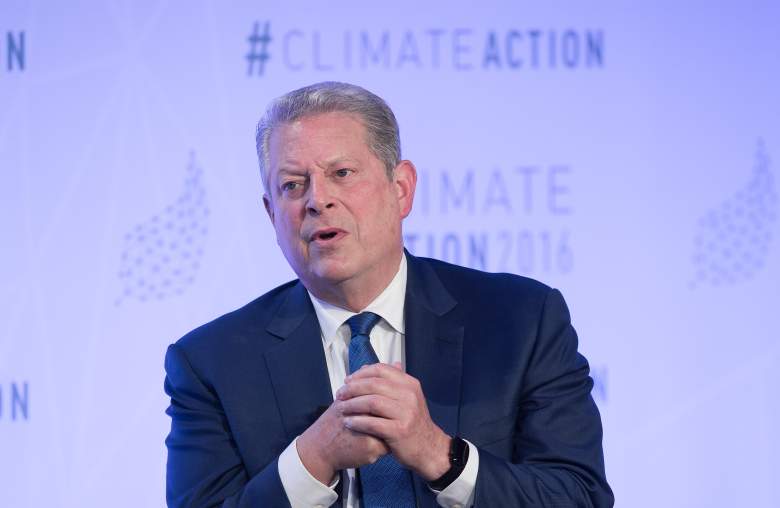
Al Gore participates in a conversation on “Climate Action: A Convenient Truth” at the Climate Action 2016 conference in Washington, DC. (Getty)
If there’s anyone who knows about the potential downside of the Electoral College system, it’s Al Gore.
In the 2000 election, Al Gore received more votes than George W. Bush, but he lost because Bush took the state of Florida and received more electors. This also happened in 2016, with Trump receiving more electors but with Hillary Clinton receiving more votes.
Now, Al Gore says the Electoral College system should be replaced with one that’s based on the popular vote. But believe it or not, this was not always how he felt. Even after the 2000 election, in which the Electoral College cost him the presidency, Gore did not call for the system to be abolished.
“After the Supreme Court decision in 2000, I continued to support the Electoral College because the original purpose was to tie the states together,” Gore recently recalled.
However, his position on this issue has changed, with Gore recently telling NBC News that he now believes it’s time for a popular vote based system.
“I think moving to a popular vote system is not without peril, is not without problems, it’s not a simple one choice is all good, the other is all bad,” Gore said. “It’s a balancing act. But I think the balance has shifted, in my mind at least, and I think that we should go to a popular vote.”
5. Gore Says Trump Successfully Tapped Into Many Americans’ Anger
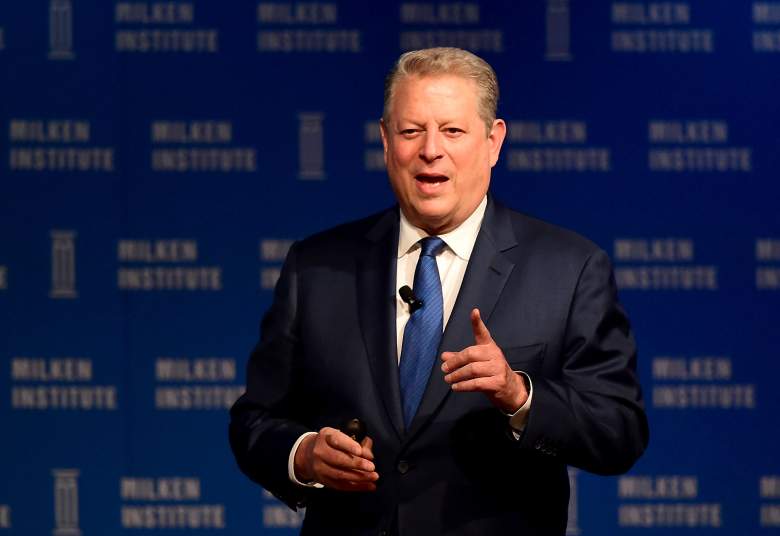
Al Gore speaks on “Investing in the Sustainable Economy” at the 2016 Milken Institute Global Conference in Beverly Hills, California. (Getty)
After the 2016 election, many political scientists felt that Hillary Clinton and her campaign severely underestimated the intense anger and frustration with the establishment being felt all over the country.
However, Al Gore seemed much more conscious of that. In a September interview on America with Jorge Ramos, Gore said that Trump was able to tap into the current mood and appeal to frustrated voters.
“I think the mood of anger that he is manifesting matches the feelings of anger that many voters, particularly in the Republican party, feel towards the way things are going in this country,” Gore said.
Gore added that he finds it ironic than one of the sources of that anger is the feeling that special interests have corrupted the political process.
